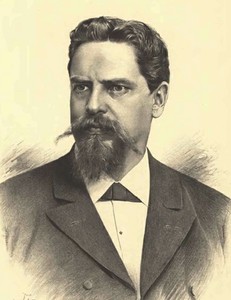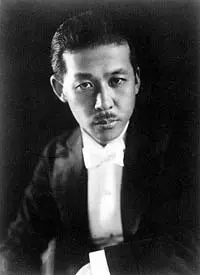
Zdeněk Fibich |
Zdenek Fibich

The remarkable Czech composer Z. Fibich, along with B. Smetana and A. Dvorak, is rightly ranked among the founders of the national school of composers. The life and work of the composer coincided with the rise of the patriotic movement in the Czech Republic, the growth of self-consciousness of its people, and this was most vividly reflected in his works. A deep connoisseur of the history of his country, its musical folklore, Fiebich made a significant contribution to the development of Czech musical culture and especially musical theater.
The composer was born in the family of a forester. Fiebich spent his childhood among the wonderful nature of the Czech Republic. For the rest of his life, he kept the memory of her poetic beauty and captured in his work romantic, fabulous images associated with the natural world. One of the most erudite people of his era, with deep and versatile knowledge in the field of music, literature and philosophy, Fibich began to study music professionally at the age of 14. He received his musical education at the Smetana Music School in Prague, then at the Leipzig Conservatory, and from 1868 he improved as a composer, first in Paris and, somewhat later, in Mannheim. Since 1871 (with the exception of two years –
The traditions of German musical romanticism played a significant role in the formation of Phoebech’s musical talent. Of no small importance was my passion for Czech romantic literature, especially the poetry of J. Vrchlicki, whose works formed the basis of many of the composer’s works. As an artist, Fiebich went through a difficult path of creative evolution. His first major works of the 60-70s. imbued with patriotic ideas of the national revival movement, plots and images are borrowed from Czech history and folk epos, saturated with expressive means characteristic of national song and dance folklore. Among these works, the symphonic poem Zaboy, Slavoy and Ludek (1874), the patriotic opera-ballad Blanik (1877), the symphonic paintings Toman and the Forest Fairy, and Spring were among the works that brought the composer fame for the first time. However, the sphere of creativity closest to Phoebe was the musical drama. It is in it, where the genre itself requires a close relationship between different types of art, that the high culture, intelligence and intellectualism of the composer found their application. Czech historians note that, with The Bride of Messina (1883), Fibich enriched the Czech opera with a musical tragedy, which had no equal at that time in terms of its breathtaking artistic impact. Late 80s – early
The last decade in the work of Phoebech was especially fruitful. He wrote 4 operas: “The Tempest” (1895), “Gedes” (1897), “Sharka” (1897) and “The Fall of Arcana” (1899). However, the most significant creation of this period was a composition unique for the entire world piano literature – a cycle of 376 piano pieces “Moods, Impressions and Memories”. The history of its origin is connected with the name of Anezka Schulz, the composer’s wife. This cycle, called by Z. Nejedly “Fiebich’s love diary”, became not only a reflection of the composer’s deeply personal and intimate feelings, but was a kind of creative laboratory from which he drew material for many of his works. The aphoristically brief images of the cycle were refracted in a peculiar way in the Second and Third Symphonies and gained special trepidation in the symphonic idyll Before Evening. The violin transcription of this composition, owned by the outstanding Czech violinist J. Kubelik, became widely known under the name “Poem”.
I. Vetlitsyna





